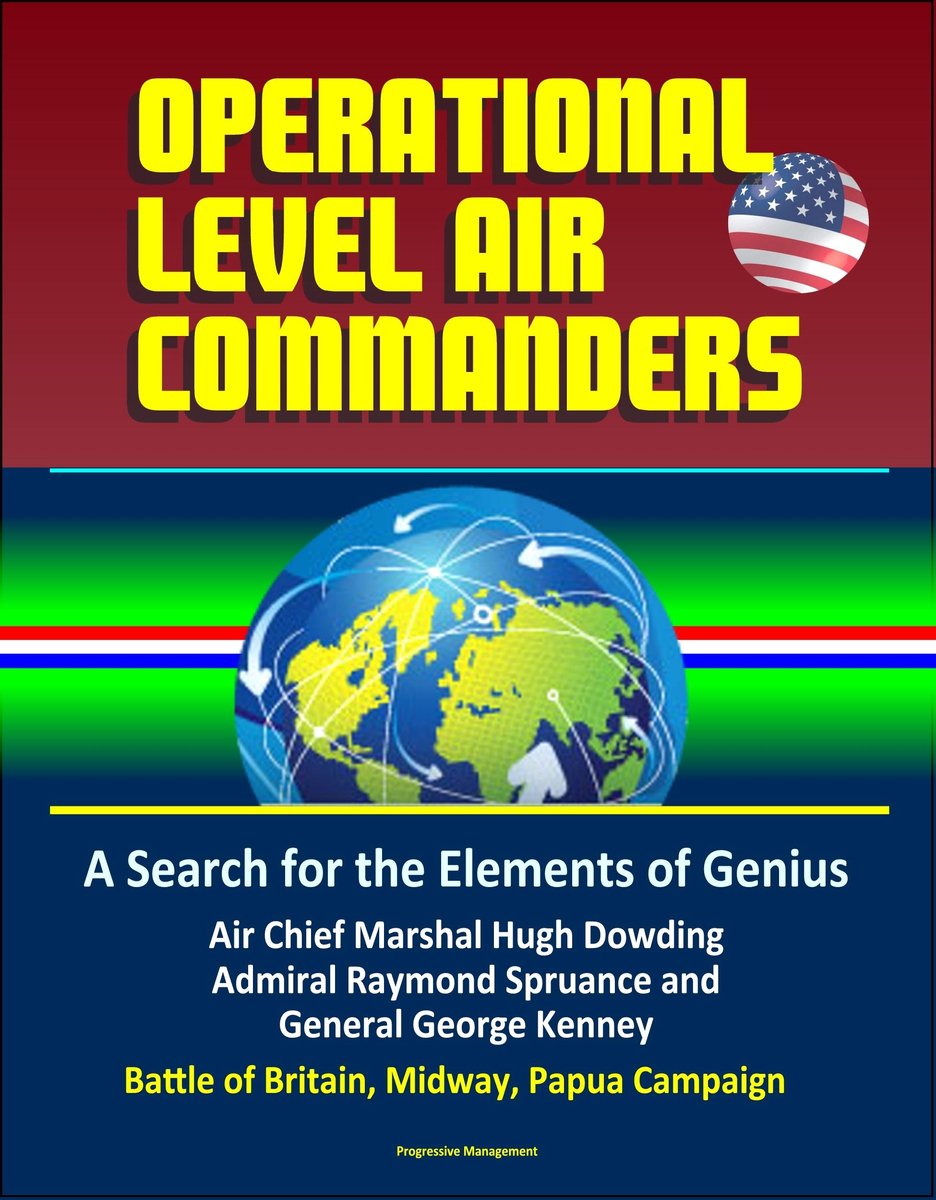Operational Level Air Commanders: A Search for the Elements of Genius - Air Chief Marshal Hugh Dowding, Admiral Raymond Spruance, and General George Kenney, Battle of Britain, Midway, Papua Campaign
This important report has been professionally converted for accurate flowing-text e-book format reproduction. One of the recurring themes of military literature is a search for the qualities and attributes of successful commanders. Carl von Clausewitz argues that some commanders possess a genius for war. Others argue that battle and campaign outcomes are merely functions of luck. Although this debate has largely been confined to war on land and at sea, it clearly has relevance for air warfare as well. Is the outcome of an air campaign a function of luck, or is there a genius for air command? This thesis attempts to discover the elements of genius for air command at the operational level of war. To that end, the paper investigates the theory of genius for war in all three mediums, land, sea and air in order to develop a hypothetical set of traits or characteristics. These traits are categorized into J.F.C. Fuller's cognitive, moral, and physical domains. Three selected commanders are then chosen for an empirical investigation. The standard for this analysis is that each investigated air commander must achieve significant results with limited resources during a an air campaign. This precondition minimizes the likely effects of luck. The commanders analyzed within this study are Air Chief Marshal Hugh Dowding, Adm Raymond A. Spruance, and Gen George C. Kenney. Finally, a comparative analysis identifies the common elements of genius for operational level air commanders. The analysis also compares the identified elements of genius for air command with surface command and draws several conclusions. The thesis concludes with a discussion of implications and a recommendation for potential operational level air commanders to study and reflect upon the nature of this activity through professional education and self-study. Operational Level Air Commanders * Chapter 1 - Introduction * Chapter 2 - Theory * Chapter 3 - Dowding: Command Performance for Defense * Chapter 4 - Spruance: In Command at Midway * Chapter 5 - Kenney and The Fighting Fifth in the Papuan Campaign * Chapter 6 - Analysis * Chapter 7 - Conclusions and Implications Why is it important to study this issue of genius in air commanders? The basic reason is that war is a complicated business, and air war is particularly complex. According to Dr. Harold Winton of the School of Advanced Airpower Studies (SAAS) Airpower, by its very nature, is an extremely diverse phenomenon. Its application includes not only the dynamics of air-to-air warfare, but also its intersections with all other forms of warfare. And like other forms of warfare, it is intimately connected with political as well as military realities. These facts dictate that its theory must comprehend its relationships with warfare on land, on sea, and in space as well as war in the air.2 Since it is complicated, it takes people with fully developed aptitudes for it to conduct it well.
- Ean/ISBN: 9781370065714
- Review:
